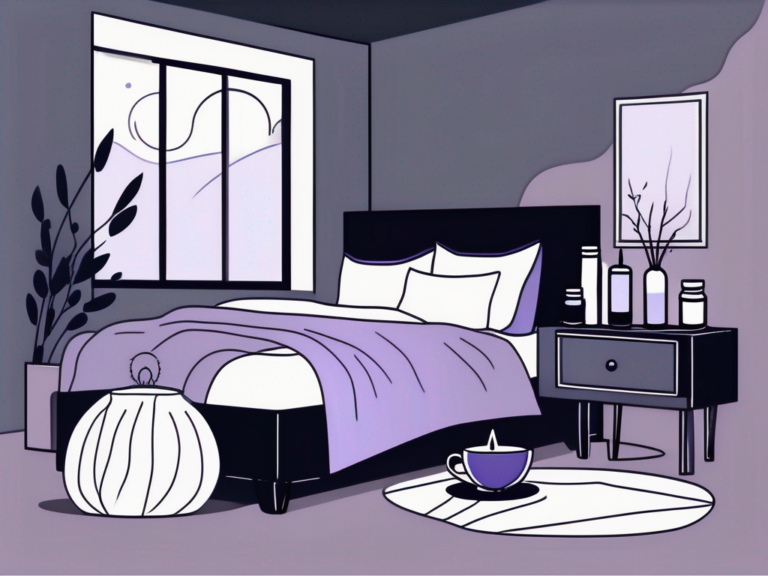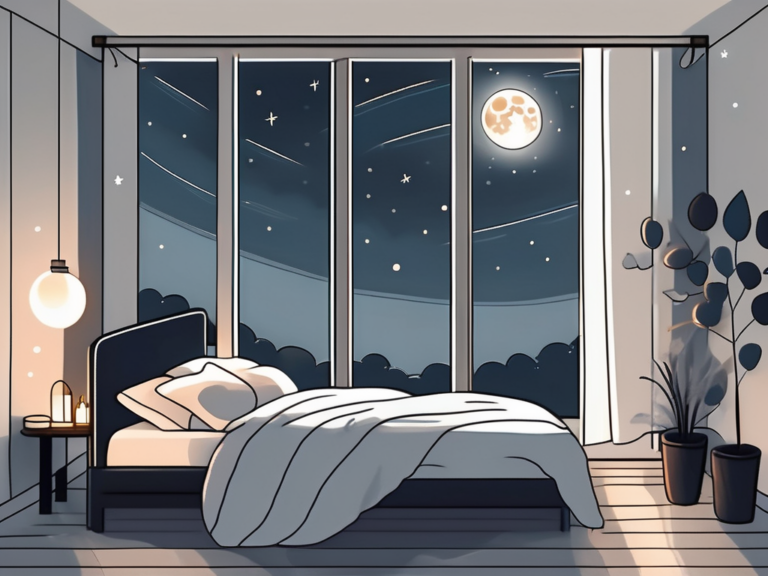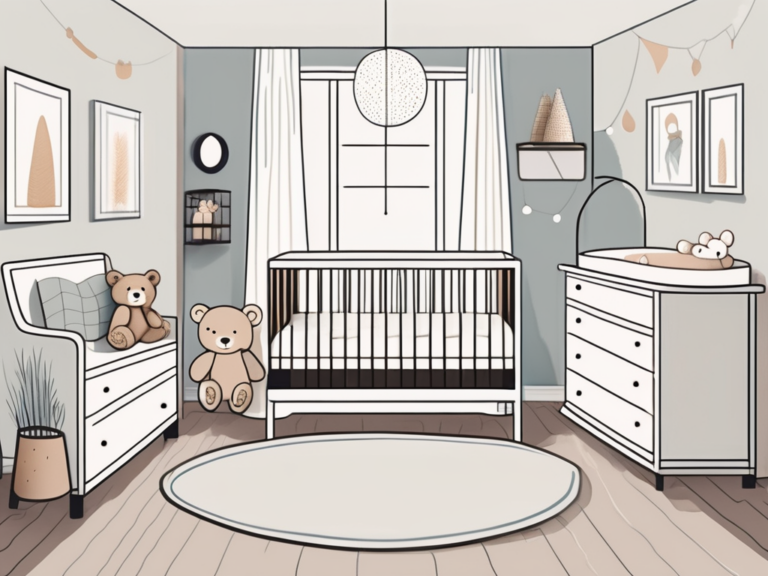Tips on How to Sleep Faster
Are you tired of tossing and turning every night, struggling to fall asleep? If so, you’re not alone. Many people experience difficulties when it comes to getting a good night’s rest. In this article, we will explore various tips and techniques to help you sleep faster and wake up feeling refreshed.
Understanding the Importance of Sleep
Sleep is an essential part of our daily lives. It is during this time that our bodies and minds rejuvenate and repair themselves. Adequate sleep is crucial for maintaining good physical and mental health. Lack of sleep can lead to a range of issues, including decreased productivity, impaired cognitive function, and even an increased risk of chronic conditions such as obesity and heart disease.
The Science Behind Sleep
Before we delve into the tips on how to sleep faster, let’s take a moment to understand the science behind sleep. Our sleep-wake cycle is regulated by a complex interplay of hormones, including melatonin and cortisol. Melatonin, often referred to as the “sleep hormone,” helps regulate our sleep patterns, while cortisol, known as the “stress hormone,” plays a role in waking us up. The balance of these hormones is essential for maintaining a healthy sleep routine.
But did you know that sleep is not just a passive state of rest? It is a dynamic process that involves various stages. During a typical night’s sleep, we go through multiple cycles of non-rapid eye movement (NREM) sleep and rapid eye movement (REM) sleep. NREM sleep can be further divided into three stages, with each stage offering unique benefits. Stage 1 is the lightest stage of sleep, where we may experience drifting in and out of wakefulness. Stage 2 is characterized by a decrease in body temperature and heart rate, preparing us for deeper sleep. Finally, Stage 3 is the deepest stage of sleep, also known as slow-wave sleep, where our bodies undergo significant restoration and repair.
Why Quality Sleep Matters
When we talk about sleeping faster, it’s not just about falling asleep quickly. The quality of sleep is equally important. Deep, restorative sleep allows our bodies to repair themselves and promotes optimal brain functioning. By improving both the speed and quality of your sleep, you can reap the full benefits of a good night’s rest.
During REM sleep, our brains are highly active, and this is when we experience vivid dreams. This stage is crucial for memory consolidation and emotional regulation. It is during REM sleep that our brains process and make sense of the information we encountered during the day, helping us form memories and learn new things. So, the next time you have a dream, remember that it is your brain’s way of working through the events and emotions of your waking hours.
Additionally, sleep plays a vital role in regulating our appetite and metabolism. When we don’t get enough sleep, our hunger hormones, such as ghrelin, increase, leading to an increased appetite and cravings for unhealthy foods. On the other hand, leptin, the hormone responsible for signaling fullness, decreases, making it harder for us to feel satisfied after a meal. This imbalance can contribute to weight gain and obesity over time.
Identifying Sleep Problems
Before implementing any sleep solutions, it’s important to determine if you have any underlying sleep problems. Common sleep disorders include insomnia, sleep apnea, and restless leg syndrome. If you suspect you may have a sleep disorder, consult with a healthcare professional for a proper diagnosis and treatment.
Common Sleep Disorders
Insomnia is characterized by difficulty falling asleep or staying asleep, leading to insufficient rest. Sleep apnea is a condition where breathing repeatedly stops and starts during sleep, resulting in disrupted sleep patterns. Restless leg syndrome causes an irresistible urge to move the legs, often accompanied by uncomfortable sensations.
Signs You’re Not Getting Enough Sleep
Even if you don’t have a diagnosed sleep disorder, there are signs that indicate you may not be getting enough sleep. These signs include daytime fatigue, difficulty concentrating, mood swings, and a general lack of energy. If you experience any of these symptoms, it’s essential to take steps to improve your sleep quality and duration.
Let’s delve deeper into each of these common sleep disorders to better understand their impact on your sleep quality and overall well-being.
Insomnia, the most prevalent sleep disorder, can be caused by various factors such as stress, anxiety, or even certain medications. It can lead to a vicious cycle of sleeplessness, as the frustration of not being able to fall asleep can further exacerbate the problem. Individuals with insomnia often find themselves tossing and turning in bed, unable to find a comfortable position or quiet their racing thoughts.
Sleep apnea, on the other hand, is a serious condition that can have significant health consequences if left untreated. It is characterized by repeated pauses in breathing during sleep, which can last for seconds or even minutes. These interruptions in breathing can disrupt the normal sleep cycle, leading to fragmented and poor-quality sleep. Common symptoms of sleep apnea include loud snoring, gasping for air during sleep, and excessive daytime sleepiness.
Restless leg syndrome, although less well-known, can also have a significant impact on sleep quality. People with this condition often experience uncomfortable sensations in their legs, such as itching, tingling, or a crawling sensation. These sensations are usually relieved by moving the legs, which can make it difficult to fall asleep or stay asleep throughout the night. Restless leg syndrome can lead to sleep deprivation and daytime fatigue, affecting overall productivity and well-being.
By understanding the nuances of these sleep disorders, you can better identify any potential issues you may be facing. Remember, if you suspect you have a sleep disorder or are experiencing signs of insufficient sleep, seeking professional help is crucial. A healthcare professional can provide an accurate diagnosis and recommend appropriate treatment options to help you achieve restful and rejuvenating sleep.
Lifestyle Changes for Better Sleep
In addition to addressing any underlying sleep disorders, making certain lifestyle changes can significantly improve your ability to sleep faster. Let’s explore two vital aspects: diet and exercise.
Diet and Sleep
Maintaining a healthy diet can positively impact your sleep. Avoid heavy meals close to bedtime, as this can cause discomfort and indigestion. Additionally, limit your caffeine and alcohol intake, as these substances can interfere with your sleep cycles. Instead, opt for sleep-promoting foods such as turkey, cherries, and almonds, which contain tryptophan and melatonin.
Did you know that tryptophan is an essential amino acid that helps your body produce serotonin, a neurotransmitter that regulates sleep? By including foods rich in tryptophan in your diet, you can naturally boost your serotonin levels and promote better sleep. Apart from turkey, cherries, and almonds, other sources of tryptophan include chicken, eggs, and dairy products.
Furthermore, melatonin, often referred to as the “sleep hormone,” plays a crucial role in regulating your sleep-wake cycle. It is naturally produced by your body in response to darkness, signaling that it’s time to sleep. By consuming foods that contain melatonin, like cherries, you can enhance your body’s natural melatonin production and improve your sleep quality.
Exercise and Sleep
Regular exercise is an excellent way to promote better sleep. Engaging in physical activity during the day can help you feel more tired at night, making it easier to fall asleep. However, avoid intense workouts close to bedtime, as this can have the opposite effect. Aim for at least 30 minutes of exercise most days of the week for optimal sleep benefits.
Exercise not only helps tire your body physically but also has a positive impact on your mental well-being. When you engage in physical activity, your brain releases endorphins, which are known as “feel-good” chemicals. These endorphins not only elevate your mood but also help reduce stress and anxiety, both of which can interfere with your ability to fall asleep.
Moreover, exercise promotes the production of adenosine, a chemical that accumulates in your brain throughout the day and helps regulate your sleep-wake cycle. By increasing your daily physical activity, you can enhance the build-up of adenosine, making you feel more sleepy and ready for a restful night’s sleep.
Creating a Sleep-Inducing Environment
Your bedroom environment plays a significant role in your ability to sleep faster. By making a few simple adjustments, you can create an environment that promotes relaxation and restful sleep.
The Ideal Bedroom for Sleep
Keep your bedroom cool, dark, and quiet. Use blackout curtains or an eye mask to block out any excess light. Installing a white noise machine or using earplugs can help mask any disruptive noises. Additionally, investing in a comfortable mattress and pillows can greatly enhance your overall sleep quality.
The Role of Light and Noise
Light and noise can disrupt your natural sleep-wake cycle. Exposure to bright lights, especially from electronic devices, can inhibit the release of melatonin, making it harder to fall asleep. Avoid screens for at least an hour before bed and consider using dim lights in the evening. If external noise is an issue, consider using a fan or a white noise app to drown out any disturbances.
Now, let’s delve deeper into the impact of light and noise on your sleep quality. The presence of light in your bedroom can have a profound effect on your ability to fall asleep and stay asleep. Our bodies are designed to follow a natural sleep-wake cycle, also known as the circadian rhythm, which is regulated by the release of melatonin. Melatonin is a hormone that helps us feel sleepy and signals to our bodies that it’s time to rest. However, exposure to bright lights, especially in the evening, can suppress the production of melatonin, making it more difficult to fall asleep.
To create an optimal sleep environment, it’s important to minimize your exposure to bright lights before bed. This means avoiding electronic devices such as smartphones, tablets, and laptops at least an hour before you plan to sleep. Instead, consider engaging in relaxing activities such as reading a book, taking a warm bath, or practicing gentle stretching exercises. By reducing your exposure to bright lights and engaging in calming activities, you can help your body naturally wind down and prepare for a restful night’s sleep.
Establishing a Sleep Routine
A consistent sleep routine can signal your body that it’s time to wind down and prepare for sleep. By following a set schedule, you can train your body to fall asleep faster and experience more restful nights.
The Importance of a Consistent Sleep Schedule
Try to go to bed and wake up at the same time every day, even on weekends. This regularity helps regulate your body’s internal clock, making it easier to fall asleep and wake up naturally. Consistency is key when it comes to establishing healthy sleep patterns.
Relaxation Techniques Before Bed
Incorporating relaxation techniques into your bedtime routine can help calm your mind and prepare your body for sleep. Consider activities such as reading a book, taking a warm bath, or practicing deep breathing exercises. Avoid engaging in stimulating activities or using electronic devices close to bedtime, as these can interfere with your ability to relax and unwind.
Another effective relaxation technique is progressive muscle relaxation. This involves tensing and then releasing each muscle group in your body, starting from your toes and working your way up to your head. By consciously relaxing your muscles, you can release any tension or stress that may have accumulated throughout the day, promoting a more peaceful sleep.
Creating a comfortable sleep environment is also crucial for a good night’s rest. Make sure your bedroom is dark, quiet, and at a comfortable temperature. Consider using blackout curtains, earplugs, or a white noise machine to block out any distractions that may disrupt your sleep. Additionally, investing in a supportive mattress and pillows can help alleviate any discomfort or pain that may interfere with your ability to fall asleep and stay asleep.
Overcoming Sleep Anxiety
Sleep anxiety can often lead to difficulty falling asleep. To conquer this issue, it’s important to address the underlying causes of anxiety and implement calming techniques.
Mindfulness and Sleep
Mindfulness meditation and relaxation exercises can be beneficial in reducing anxiety and promoting better sleep. Incorporate mindfulness practices into your daily routine, such as focused breathing or body scans, to help calm racing thoughts and induce a sense of tranquility before bedtime.
When practicing mindfulness, it’s essential to create a peaceful environment that supports relaxation. Consider dimming the lights, playing soft instrumental music, or using aromatherapy with calming scents like lavender or chamomile. These additional elements can enhance the effectiveness of your mindfulness practice and create a soothing atmosphere conducive to a good night’s sleep.
Cognitive Behavioral Techniques for Sleep Anxiety
Cognitive-behavioral therapy (CBT) has been proven effective in treating sleep anxiety. This therapy focuses on identifying and challenging negative thought patterns regarding sleep and replacing them with positive, more realistic beliefs. Consult with a qualified therapist to explore CBT techniques that can help alleviate your sleep anxiety.
In addition to CBT, incorporating relaxation techniques into your bedtime routine can further enhance the effectiveness of your sleep anxiety management. Consider engaging in activities such as reading a book, taking a warm bath, or practicing gentle stretching exercises. These activities can help relax your body and mind, preparing you for a restful night’s sleep.
When to Seek Professional Help
If you have tried various strategies and still struggle to sleep faster, it may be time to seek professional help. Sleep therapy options, including cognitive-behavioral therapy for insomnia (CBT-I), can provide valuable guidance and support in improving your sleep patterns.
Sleep Therapy Options
CBT-I is a specialized form of therapy that focuses on targeting the root causes of insomnia and implementing effective strategies for better sleep. Working with a trained therapist can help you identify and overcome the barriers preventing you from sleeping faster and more efficiently.
During CBT-I sessions, you will learn various techniques to improve your sleep hygiene. This may include keeping a sleep diary to track your sleep patterns, implementing relaxation exercises like deep breathing or progressive muscle relaxation, and challenging negative thoughts or beliefs that may be contributing to your insomnia. Your therapist will work with you to develop a personalized treatment plan tailored to your specific needs and goals.
Medications and Sleep Aids
In some cases, medication or sleep aids may be necessary to address persistent sleep issues. However, it is essential to consult with a healthcare professional before considering any medication, as they can have side effects and should only be used as a last resort after implementing other sleep-enhancing strategies.
There are different types of medications that can be prescribed for insomnia, such as benzodiazepines, non-benzodiazepine hypnotics, and melatonin receptor agonists. Each medication works differently to help regulate sleep, and your healthcare provider will determine the most suitable option based on your individual circumstances.
It’s important to note that while medications can provide short-term relief, they are not intended for long-term use. They should be used under the guidance of a healthcare professional and in conjunction with other behavioral and lifestyle changes to address the underlying causes of your sleep difficulties.
In conclusion, improving your sleep quality and falling asleep faster is within reach. By implementing lifestyle changes, creating a sleep-inducing environment, establishing a consistent sleep routine, and utilizing relaxation techniques, you can achieve restful nights and wake up feeling rejuvenated. Remember, if you continue to experience sleep difficulties, don’t hesitate to seek professional help. Prioritizing your sleep will have a positive impact on all aspects of your life, allowing you to thrive both physically and mentally.
Whether you choose sleep therapy options like CBT-I or explore medication options with the guidance of a healthcare professional, taking the step to seek help is a proactive approach towards improving your sleep. Remember, you don’t have to face sleep difficulties alone. There are experts available who can provide the necessary support and guidance to help you overcome your sleep challenges and achieve the restful nights you deserve.






